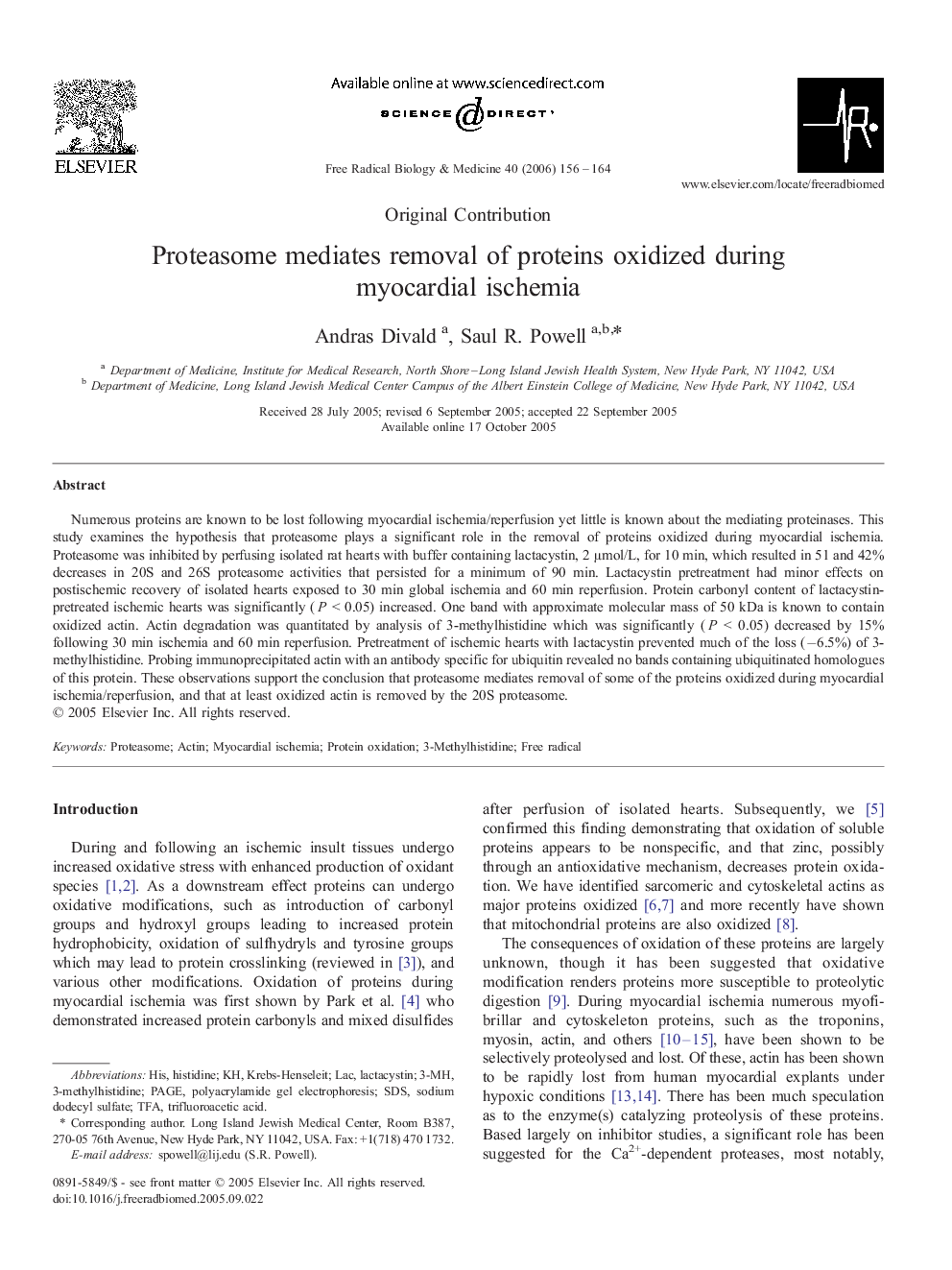| Article ID | Journal | Published Year | Pages | File Type |
|---|---|---|---|---|
| 1911763 | Free Radical Biology and Medicine | 2006 | 9 Pages |
Numerous proteins are known to be lost following myocardial ischemia/reperfusion yet little is known about the mediating proteinases. This study examines the hypothesis that proteasome plays a significant role in the removal of proteins oxidized during myocardial ischemia. Proteasome was inhibited by perfusing isolated rat hearts with buffer containing lactacystin, 2 μmol/L, for 10 min, which resulted in 51 and 42% decreases in 20S and 26S proteasome activities that persisted for a minimum of 90 min. Lactacystin pretreatment had minor effects on postischemic recovery of isolated hearts exposed to 30 min global ischemia and 60 min reperfusion. Protein carbonyl content of lactacystin-pretreated ischemic hearts was significantly (P < 0.05) increased. One band with approximate molecular mass of 50 kDa is known to contain oxidized actin. Actin degradation was quantitated by analysis of 3-methylhistidine which was significantly (P < 0.05) decreased by 15% following 30 min ischemia and 60 min reperfusion. Pretreatment of ischemic hearts with lactacystin prevented much of the loss (−6.5%) of 3-methylhistidine. Probing immunoprecipitated actin with an antibody specific for ubiquitin revealed no bands containing ubiquitinated homologues of this protein. These observations support the conclusion that proteasome mediates removal of some of the proteins oxidized during myocardial ischemia/reperfusion, and that at least oxidized actin is removed by the 20S proteasome.
